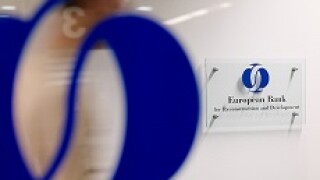Africa
-
The Republic of Ghana raised $2bn with a dual tranche 10 and 30 year bond issue on Thursday, timing the deal well as emerging market assets rallied after several days of weakness.
-
The Republic of Ghana was set to price its dollar dual tranche bond as GlobalCapital went to press on Thursday evening, having picked a phenomenal day for a deal, with the bonds of several African sovereigns bouncing two points.
-
The Republic of Ghana is taking advantage of a more stable day in emerging market currency trading to print its bond, though the country’s outstanding paper has widened during the roadshow.
-
African Export-Import Bank is setting off on a dollar roadshow to market a benchmark, Reg S dollar bond with a tenor of five to seven years.
-
National Bank of Egypt (NBE) is due to launch a dollar denominated three year loan imminently.
-
The strengthening dollar is wreaking havoc for emerging market bond investors as assets in local currencies and dollars alike take a hammering.
-
The European Bank for Reconstruction and Development is in the midst of its first annual meeting in the Middle East, and its president has again floated the idea of another big expansion of the bank’s remit to include sub-Saharan Africa.
-
Standard Chartered managing director and head of Africa DCM James Nelson is returning to London after two years in Dubai.
-
South Africa’s Absa is looking to establish a corporate and investment banking unit in London, and is actively in the process of hiring DCM and syndicate bankers, according to sources.
-
Shares in Vivo Energy, the African fuel distributor, rose more than 3% on its first day of trading on the London Stock Exchange on Friday, after its £558m IPO attracted substantial demand.
-
The Republic of Angola raised $3bn this week with its first Eurobond since 2015, after a juicy yield and a positive narrative about reform in the country enticed investors to place $9bn of orders.
-
The Republic of Angola has released initial price guidance for its dual tranche bond, which a banker away from the deal said looked generous.










